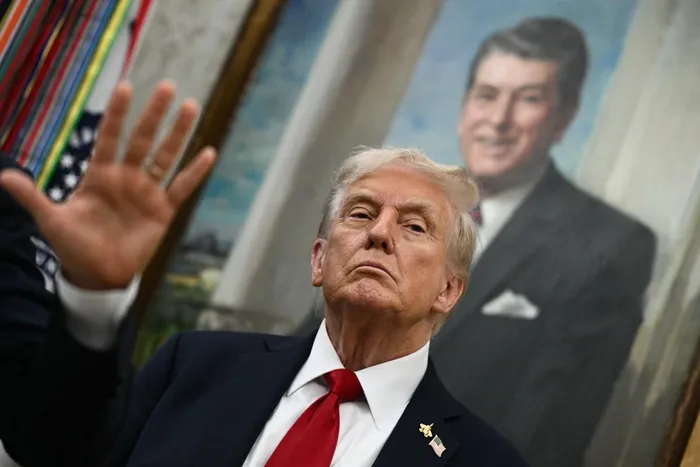Trump becoming more divorced from reality , says Canadian G20 representative

US President Donald Trump.
Image: Brendan Smialowski / AFP
G20 Research Group co-director John James Kirton from Canada has described US President Donald Trump as a bad and unpredictable neighbour.
"I think that Donald Trump, with every tweet, is becoming more and more divorced from reality, leading to speculation that he may be suffering from dementia. He wants to annex Canada, using economic sanctions. No one knows what is next when he is involved," Kirton said.
"Trump is not a good neighbour. Not to Canada, not to Mexico and certainly not to Argentina. In this summit, there is Russia, there is Canada, there is India, and other countries are here, but it seems President Trump does not realise that he needs the critical minerals from Africa to power his economy," he stated.
Kirton was speaking during the first day of the G20 Leaders Summit in Johannesburg at the weekend.
His remarks came as the South African government put its foot down refusing to give in to the latest US demands including sending a junior diplomat for the G20 presidency.
Speaking on behalf of the Department of International Relations and Cooperation, Chrispin Phiri said: "We have marked the US absent from this summit. We will not allow anyone to represent them here. In fact, no one from the US has been accredited to be here."
The US boycott of this G20 is being seen as an example of Trump's criticism of multinational organisations, having pulled the US out of both the Paris climate agreement and the World Health Organization.
Despite Trump’s boycott, other leaders travelled to Johannesburg, hoping to find common ground, especially around new trade deals in the wake of US tariffs.
German Chancellor Friedrich Merz said African states are searching for partnerships, adding that he expects to return to Germany with good results.
Australian Prime Minister Anthony Albanese described the G20 as an important gathering, saying that one in four jobs in his country depended on trade with partners like those in the G20.
The US’s difficulty with multilateral processes in general was at the centre of its stand-off with South Africa, as it prefers to deal individually with countries, said Dr Siphamandla Zondi, director of the Institute for Pan-African Thought and Conversation.
"The US believes that these multilateral bodies are dominated by ideologies closer to the Democratic Party than to the Republicans, and it has difficulty with the ideas of sustainability, digital inclusion, human-induced artificial intelligence, inclusive growth, and just transition."
Zondi said Ramaphosa’s decision to decline handing over the reins of the G20 (the US will host the summit next year) to an embassy official was fair, and the US was the only country without a representative.
"Trump has described it as a side show (without the US), but the rest of the G20 have held 200 meetings up to this point, and they cannot abandon the process at this point, simply because one member has its own issues with the system."
Cape Times